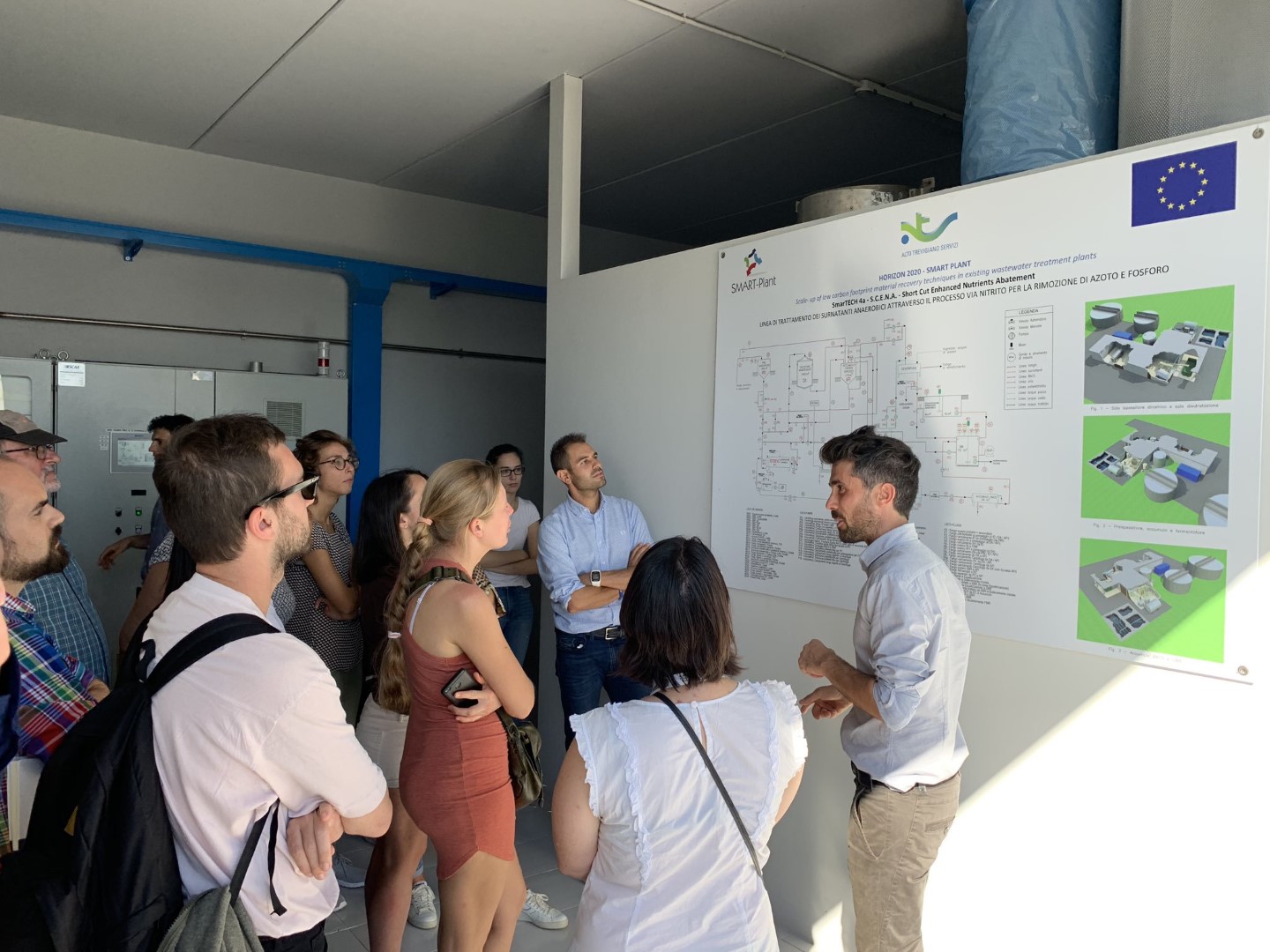
SMART-Plant scales-up in real environment eco-innovative and energy-efficient solutions to renovate existing wastewater treatment plants and close the circular value chain by applying low-carbon techniques to recover materials that are otherwise lost.
Seven plus two (7+2) pilot systems were optimized for more than two years in real environment in five municipal water treatment plants, including also two post-processing facilities. The systems were automatized with the aim of optimizing wastewater treatment, resource recovery, energy-efficiency and reduction of greenhouse emissions. A comprehensive SMART portfolio comprising biopolymers, cellulose, fertilizers and intermediates were recovered and processed up to the final commercializable end-products.
Dynamic modeling and superstructure framework for decision support was developed and validated to identify the optimum SMART-Plant system integration options for recovered resources and technologies.
The integration of resource recovery assets to system wide asset management programs were evaluated in each site following the resource recovery paradigm for the wastewater treatment plant of the future, enabled through SMART-Plant solutions. The project proved the feasibility of circular management of urban wastewater and environmental sustainability of the systems, through Life Cycle Assessment and Life Cycle Costing approaches as well as the global benefit of the scaled-up water solutions.
Global market deployment was achieved as right fit solution for water utilities and relevant industrial stakeholders, considering the strategic implications of the resource recovery paradigm in case of both public and private water management. New public-private partnership models were also explored connecting the water sector to the chemical industry and its downstream segments such as the construction and agricultural sector, thus generating new opportunities for funding and potential public-private competition.







